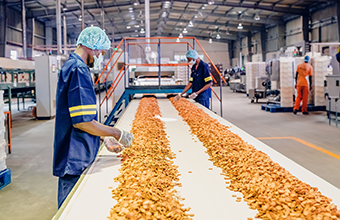For the younger generation of millennials who were still in school during the Great Recession of 2008, the current crisis is uncharted territory. For many of us, working from home is an entirely new concept that has been a true test of our productivity, mental stability, and tenacity. But despite these challenges, millennials may have the upper hand; our tech-savvy nature and ability to adapt quickly to change makes us well equipped for situations that are in constant flux.
Unexpected Challenges
Many millennials rely on the classic workplace experience that first drew us to our respective companies. It is no secret that a company’s culture is one of the most important factors when it comes to attracting talent. But learning to adapt to only seeing people virtually is a major transition. While occasional work from home days were always considered an added benefit, it can be a bit weird to accept that working from home will be the norm for the foreseeable future— even when we begin to return to the office. Most offices will not be welcoming staff back at full capacity for quite some time, if ever.
A vast majority of the millennial population was hit hard by this economic crisis. According to a recent study reported by Business Insider, 48 percent of workers in clothing stores, 49 percent of workers in food services, and 59 percent of workers in bars are millennials. With all that considered, it's not hard to feel overwhelmed by these factors significantly disrupting our livelihood.
Making the Best of It
Despite the various hurdles we are navigating, millennials in the workplace are dealing with the economic crisis in the only way we know how: simply making the best of it. By embracing the change with an open-minded, optimistic attitude about the future, we were able to quickly adapt to the unexpected twists and turns the pandemic placed upon us. Because we’re digital natives, our ability to adopt new technology was a real asset that cements our extreme flexibility. But to say we did it on our own would be an understatement. By seeking the mentorship and wisdom from those who have faced these untraditional paths before us, we were able to look to older generations for guidance on how to navigate this new playing field.
The unprecedented times we are facing have also encouraged millennials to think about what more we could be doing. How can we demonstrate how much of an asset we are to our companies? When the going gets tough, we must think innovatively to find ways to solidify our role in the workplace and prove our value. Outside of the office, we've also been making the best of our situations. Spending so much time at home has provided us with extensive opportunities to get inspired, whether it’s through new fitness goals, taking up new hobbies, or furthering our education. Notably, millennials are spending this time away from the office taking action to keep their communities healthy and connected through the pandemic and beyond. In fact, Dr. Deborah Birx, coordinator of the White House Coronavirus Task Force, proclaimed millennials “are the core group that will stop this virus.” Whether it’s volunteering with neighborhood mutual aid funds or helping care for a family member, millennials are stepping up during these challenging times.
Ultimately, we have been hit with a tsunami of unfamiliar territory that has proved to be a huge test of mental endurance. As the world begins to emerge from this, we will continue to adapt and adjust to the new “normal,” but most importantly we will persevere through to the end. If there is anything that we’ve learned from this economic crisis and global pandemic, it’s that being resilient, open-minded, and thoughtful in times of transition is key.



